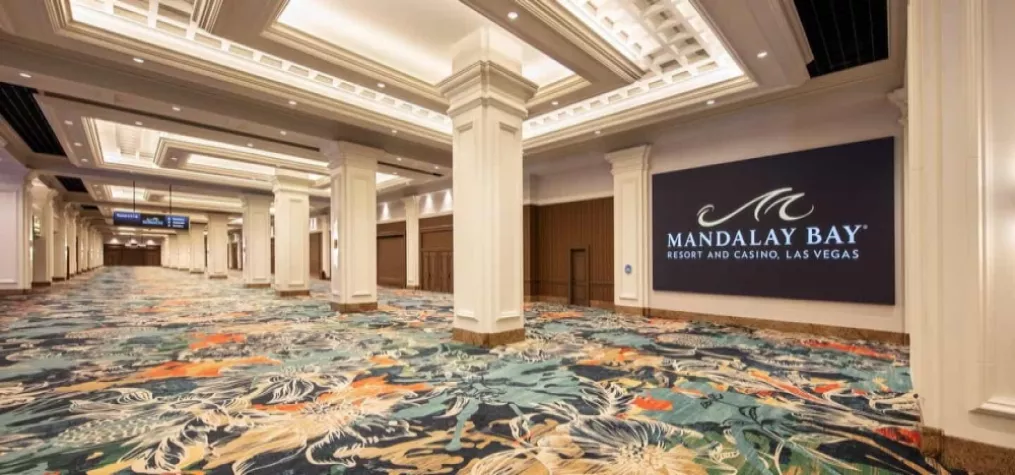6Connex, BizBash Survey: Virtual and Hybrid Events Are Here to Stay in 2022 and Beyond

6Connex, a provider of in-person, virtual and hybrid event solutions, and BizBash, a trade media platform, recently conducted a survey of event professionals that sought to gauge how events will take place in 2022 and beyond, with virtual and hybrid formats holding steady as go-to options.
The survey, which took place in Q4 2021 before the full impact of the Delta and Omicron variants of COVID-19 were known, indicated that more than 75% of respondents will host at least a portion of their events virtually in 2022, while 51% expect most of their 2022 events to be produced in a hybrid format, and 25% expect their events to be fully virtual this year.
“Even before we all realized the additional wave created by Omicron, event professionals were planning on virtual events—whether hybrid or fully virtual—to play a significant role in 2022,” said Luiz Martins, CMO of 6Connex. “Beyond the latest variant, we believe the change is permanent, as event organizers, planners and even attendees understand the benefits of conducting virtual and hybrid events.”
The survey results also indicated that in 2021, the event industry began to increasingly rely more upon collaborative event technologies, leveraging them to support events of all kinds, including sales meetings, trade shows and conferences. Virtual event technology has become smarter and evolved over the last 18 months, to the point where it will likely be part of most events moving forward, whether there are pandemic concerns or not, according to Martins.
“For organizers, it’s about creating a balance between in-person and virtual offerings to take advantage of the benefits both approaches offer,” Martins said. “The last 18 months has illustrated the ROI of virtual components, which include cost savings, attracting a wider audience and sustainability.”
The survey also put numbers on the impact of the pandemic in 2021, as 72% of respondents cancelled or postponed events due to the highly contagious Delta variant, 34% changed one or more in-person events to wholly virtual, and 26% added a virtual component to one or more in-person events. Meanwhile, only 15% made no changes due to the Delta variant.
COVID-19-related fears are still a concern, according to the survey, as 37% of respondents said their organizations have increased investments in hybrid event technology due to the variants. For 2022, 32% of respondents expect more than half of their in-person events will include one or more digital elements, such as live-streaming or remote access to accommodate virtual attendees.
Tracking Sustainability
Beyond the pandemic, sustainability may play into event professionals’ decisions regarding event formats in 2022 and beyond, according to the survey results, since virtual and hybrid events help reduce carbon emissions compared to in-person events. Approximately 44% of respondents anticipate the need to quantify the carbon footprint for at least a portion of their events in 2022, and 26% plan to quantify the carbon footprints of all their events within the next two years. Another 18% expect to have to do so for some, but not all, events. Only 34% do not plan to track the carbon footprints of their events in the next two years, although they believe they will be doing so toward the middle of the decade.
Budgets
Impact on budgets were mixed, according to the survey, with $500,000 as the dividing line. Roughly half of respondents reported 2021 event budgets of $500,000 or less, while the remainder reported budgets higher than $500,000. Regarding technology, despite the growing reliance on virtual and hybrid event technology platforms, 63% said their event tech budgets were under $250,000, and three in 10 surveyed said their 2021 event technology budget was less than $25,000.
The 2022 technology budget is mixed as well, as 31% reported cuts to their event tech budgets and 31% reported an increase in their tech budgets. When there is an increase, it’s linked to COVID-19, as 37% said the variant has led their organization to increase hybrid event technology investment.
“Virtual events are a must to meet the needs of many potential attendees who are not yet comfortable with traveling or being in large gatherings,” Martins said. “Besides accommodating them, a virtual event technology gives planners visibility into attendee behavior patterns that go beyond topline attendance metrics that tend to be captured at in-person events.”
Virtual Tool Preferences
As virtual events became increasingly popular, providers of virtual event technology upgraded and expanded their offerings, and planners became accustomed to these tools.
Among the top tools for keeping virtual attendees engaged in 2021 were (with the percentage of planners using them in parenthesis):
● Live chat feeds (72%)
● Real-time polling (65%)
● Live speaker Q&A sessions (60%)
● Virtual networking receptions (49%)
● One-on-one attendee networking (37%)
● Contests and giveaways (35%)
Don’t miss any event-related news: Sign up for our weekly e-newsletter HERE and engage with us on Twitter, Facebook and LinkedIn!


Add new comment